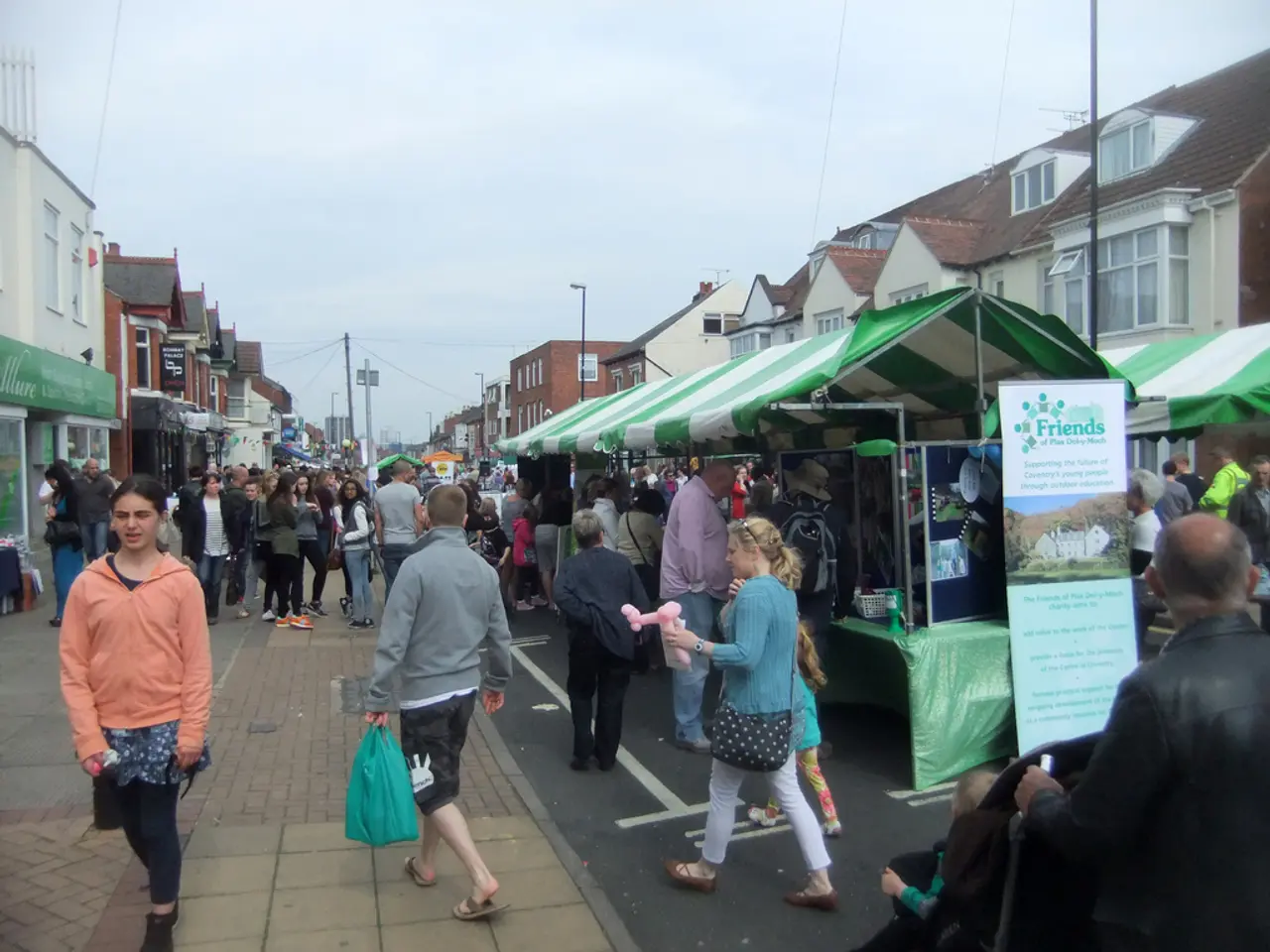House prices see the largest yearly increase since the year 2022
In the UK, house prices have shown a modest increase of 0.2% in August, according to the latest figures. However, this growth is a reflection of the broader cooling market environment, with analysts predicting a more cautious stance in the upcoming autumn period.
Daniel Abadia's photographs capture the current state of the UK housing market, where the average home now costs £292,505, an increase of 4.3% year-on-year. Despite this growth, the market is responding to Stamp Duty Land Tax changes introduced in April 2025 and ongoing interest rate pressures.
Amanda Bryden, head of mortgages at Halifax, has stated that falling mortgage rates have contributed to the revitalization of the housing market, with prospective homebuyers feeling more confident. This confidence is evident in the latest mortgage approval figures, which are at their highest level in almost two years.
However, there is still disparity in house price growth across the country. While the national average has increased by 0.3%, house prices in Eastern England have only risen by 0.3%, compared to the national average. In contrast, Greater London has seen a more significant increase, with the average house price rising by 1.5% over the last 12 months, reaching its highest since August 2022.
Austin, a debt provider, aims to support well-capitalized borrowers investing in prime property locations by bolstering developers' initiatives with a flexible underwriting approach for a changing market. This approach is intended to provide opportunities for the growing number of private individuals investing in property debt.
Despite the current slowdown in price growth, analysts foresee stronger cumulative growth over the medium term as some uncertainties ease and lending conditions potentially improve. Savills expects UK house prices to grow by around 24.5% cumulatively by the end of 2029. However, concerns such as higher-than-expected inflation keeping interest rates elevated, geopolitical uncertainties, and potential tax changes continue to contribute to buyer hesitation, especially in higher-priced segments.
In summary, the UK housing market is currently experiencing markedly slower price growth with subdued buyer activity as of summer 2025, and this cautious stance is expected to persist through the autumn period especially ahead of fiscal policy announcements. Nonetheless, analysts foresee stronger cumulative growth over the medium term as some uncertainties ease and lending conditions potentially improve.
Investors are bolstering developers' initiatives in prime property locations, aiming to capitalize on the growing number of private individuals investing in property debt, as suggested by Austin, a debt provider. On the other hand, the slowdown in price growth in the UK housing market is reflected in the housing-finance sector, with mortgage approval figures at their lowest level in almost two years despite falling mortgage rates, as stated by Amanda Bryden, head of mortgages at Halifax.




